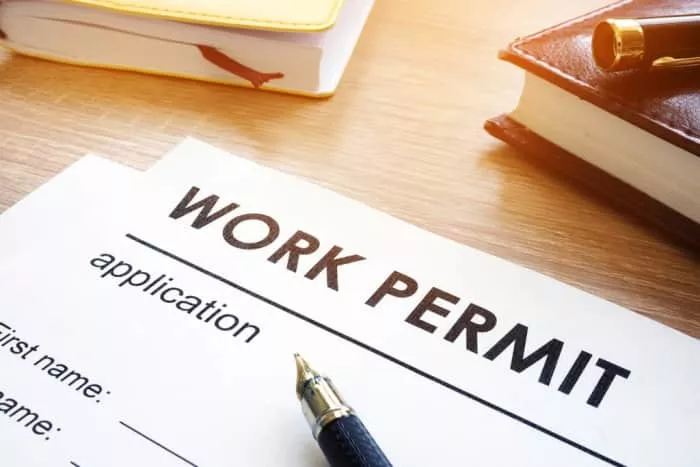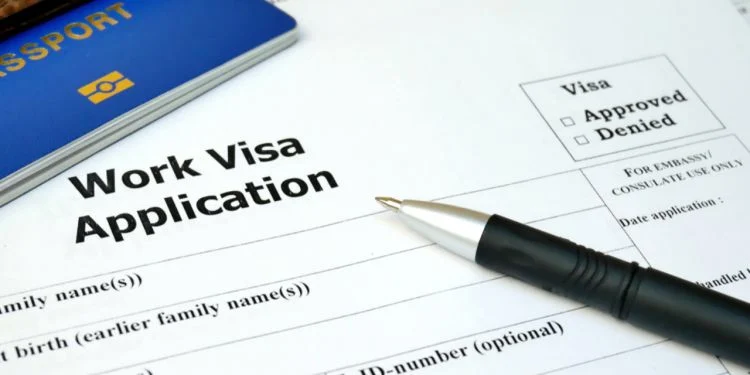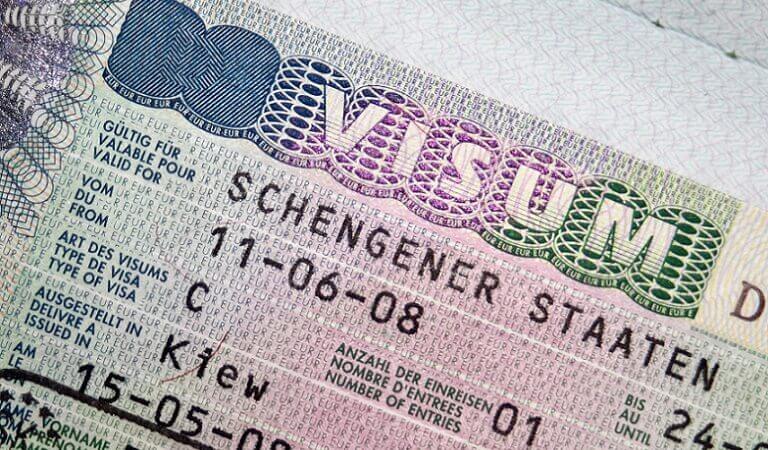Europe Work Visa Eligibility and Requirements: In this article, we will discuss Work Visa Eligibility in Europe and answer some frequently asked questions about this topic.
Europe Work Visa Eligibility and Requirements
Are you considering the exciting prospect of working in Europe? Europe offers a diverse range of job opportunities and experiences for individuals from around the world. However, before you pack your bags and embark on this adventure, it’s essential to understand the eligibility criteria and requirements for obtaining a work visa in Europe. In this comprehensive guide, we’ll explore the ins and outs of Europe work visa eligibility, the application process, and much more. Let’s dive in!
What is required to work in Europe?
To work in Europe, you will typically need a valid work visa or work permit issued by the country where you intend to work. The specific requirements can vary from country to country, but some common factors include:
- Job Offer: In most cases, you will need a job offer from a European employer to apply for a work visa. The employer must demonstrate that they could not find a suitable candidate from the local labor market, making your skills and qualifications essential.
- Proof of Qualifications: You may need to provide proof of your qualifications and skills relevant to the job you’ve been offered. This could include educational certificates, professional licenses, or work experience.
- Financial Means: Some countries may require you to show proof of sufficient financial means to support yourself during your stay.
- Health Insurance: It’s often mandatory to have health insurance coverage while working in Europe.
- Clean Criminal Record: You may be asked to provide a police clearance certificate showing you have no criminal record.
Working in Europe offers a chance to experience different cultures and gain valuable international work experience. However, to work legally, you’ll need to meet the eligibility criteria and fulfill the necessary requirements for a work visa or permit.
Can I get a work visa in Europe without a job?
In general, it is challenging to obtain a work visa in Europe without a job offer. European countries prioritize hiring their citizens and residents before considering foreign workers. However, some countries have specific programs for highly skilled professionals or individuals in certain fields where there is a labor shortage. These programs may allow you to apply for a work visa without a job offer.
If you are a highly skilled professional in a field with a labor shortage in a particular European country, you may have a higher chance of obtaining a work visa without a job offer. These countries are often eager to attract foreign talent to fill critical positions in their workforce.
Can US citizens work in the EU?
Yes, US citizens can work in the European Union (EU) with the appropriate work visa. Each EU country has its own work visa rules and requirements, so it’s crucial to research the specific country you are interested in working in.
As a US citizen, you can travel to any EU country for up to 90 days within a 180-day period for tourism or business purposes without a visa. However, if you plan to work or stay longer than 90 days, you will need a work visa or residence permit, depending on the country’s regulations.

Who is eligible for a work visa?
Eligibility for a work visa in Europe depends on factors such as your qualifications, work experience, and the specific job market in the country you wish to work in. Generally, highly skilled professionals, individuals with in-demand skills, and those with job offers from European employers have a higher chance of obtaining a work visa.
Countries in Europe often have different skill shortage lists that outline the professions where there is a demand for foreign workers. If your occupation is on the skill shortage list of a particular country, it may increase your chances of being eligible for a work visa.
Is it hard to get a work visa in Europe?
Obtaining a work visa in Europe can be a complex and competitive process, especially for non-EU citizens. The difficulty level may vary depending on the country, the demand for your skills, and the availability of local talent. It’s crucial to thoroughly research the specific requirements and follow the application guidelines to enhance your chances of success.
Some countries in Europe have more straightforward work visa processes for specific categories of workers, such as highly skilled professionals or individuals in sectors facing labor shortages. It’s essential to check the visa options and eligibility criteria for the country you are interested in.
How much does a European work visa cost?
The cost of a European work visa can vary significantly from one country to another. Additionally, different types of work visas may have different fees. For example, the cost of a work visa for highly skilled professionals might differ from a temporary seasonal work visa. It’s best to check the official website of the embassy or consulate of the country you are interested in for the most up-to-date fee information.
Keep in mind that the visa fee is not the only cost associated with obtaining a work visa. You may also need to consider other expenses, such as medical examinations, translation of documents, and travel costs.
How long does it take to get a work visa for Europe?
The processing time for a work visa in Europe can vary depending on the country and the type of visa you are applying for. In some cases, it may take several weeks or even months to process the application. It’s essential to apply well in advance and plan accordingly to avoid delays.
The processing time can also be affected by factors such as the volume of applications, the complexity of your case, and the efficiency of the immigration authorities.
Can I move to Europe without a job?
While it’s possible to move to Europe without a job, it’s essential to have a clear plan and sufficient financial resources to support yourself during your stay. Some European countries offer specific visas for individuals looking to move for purposes such as starting a business, studying, or seeking self-employment opportunities.
If you are considering moving to Europe without a job, it’s crucial to research the visa options available for your specific circumstances. Some countries may have special visas for entrepreneurs or self-employed individuals, allowing them to live and work in the country.
How can I legally move to Europe?
To legally move to Europe, you will need to apply for the appropriate visa or permit based on your intended purpose of stay. Common types of visas include work visas, study visas, family reunion visas, and business visas. It’s essential to research the specific visa requirements for the country you wish to move to and follow the application process diligently.
For example, if you are moving to Europe for work, you will need to apply for a work visa or permit. If you are moving to Europe to study, you will need to apply for a study visa or residence permit for study purposes.
Which countries allow US citizens to work?
As a US citizen, you can work in any European Union (EU) country without a work permit due to the EU’s freedom of movement principle. However, if you plan to work in non-EU countries in Europe, you will need to obtain the necessary work visa or permit.
The EU countries that are part of the Schengen Agreement, such as France, Germany, Spain, Italy, and others, allow US citizens to work without a specific work visa. However, it’s essential to check the specific requirements and regulations of each country, as some may have additional requirements for US citizens working in their territory.

Can I get a work visa for Europe from the USA?
Yes, you can apply for a work visa for Europe from the USA. The process usually involves submitting your application to the consulate or embassy of the country where you plan to work. It’s essential to gather all the required documents and follow the guidelines provided by the consulate.
The application process for a work visa may involve submitting various documents, such as a job offer letter, proof of qualifications, financial documents, and a valid passport.
What European countries are easiest to move to from the USA?
The ease of moving to European countries from the USA can vary based on visa requirements and eligibility criteria. Countries with specific programs for highly skilled professionals or individuals with unique skills shortages may be relatively easier to move to. Additionally, some countries may have more straightforward visa processes for certain types of visas, such as study visas or retirement visas.
For example, countries like Germany and Sweden are known for their welcoming attitudes toward skilled professionals, while countries like Portugal and Spain offer attractive retirement visa options for individuals looking to retire in Europe.
Who can sponsor me for a work visa?
In most cases, your prospective employer in Europe will act as your sponsor for a work visa. They will need to demonstrate to the immigration authorities that your skills and qualifications are essential for the job, and there are no suitable local candidates available.
The sponsorship process typically involves the employer providing a job offer letter and supporting documentation to prove the need for hiring a foreign worker. The employer may also need to meet certain legal obligations and commitments as part of the sponsorship process.
Can anyone sponsor a work visa?
While employers are the primary sponsors of work visas, some countries may allow individuals to sponsor themselves for specific types of visas, such as self-employment or business visas. However, the eligibility criteria and requirements for self-sponsorship can be more stringent.
Self-employment visas may be available to entrepreneurs or individuals looking to start a business in a particular European country. The application process for self-sponsored visas may involve demonstrating a viable business plan, financial resources, and a commitment to contributing positively to the local economy.
What is the difference between a work permit and a work visa?
The terms “work permit” and “work visa” are often used interchangeably, but there is a subtle difference between the two. A work permit is a legal document issued by a country that allows a foreign national to work legally within that country. A work visa, on the other hand, is a specific category of visa that authorizes the holder to work in the country for a specific period. Essentially, a work permit is an authorization, while a work visa is the actual visa category.
In general, the work permit is the official approval from the government that grants you the right to work in a specific country, while the work visa is the physical visa document that you will receive in your passport.

Conclusion
Working in Europe can be a life-changing experience, offering unique opportunities for personal and professional growth. However, obtaining a work visa requires thorough preparation, understanding of the specific requirements, and adherence to the application process. Whether you are a highly skilled professional, a student seeking work experience, or an entrepreneur looking to establish a business, there are options for working in Europe. Remember to research the visa options for your desired destination, gather the necessary documents, and present your case effectively to enhance your chances of obtaining a work visa. Good luck on your journey to pursuing exciting work opportunities in Europe!

